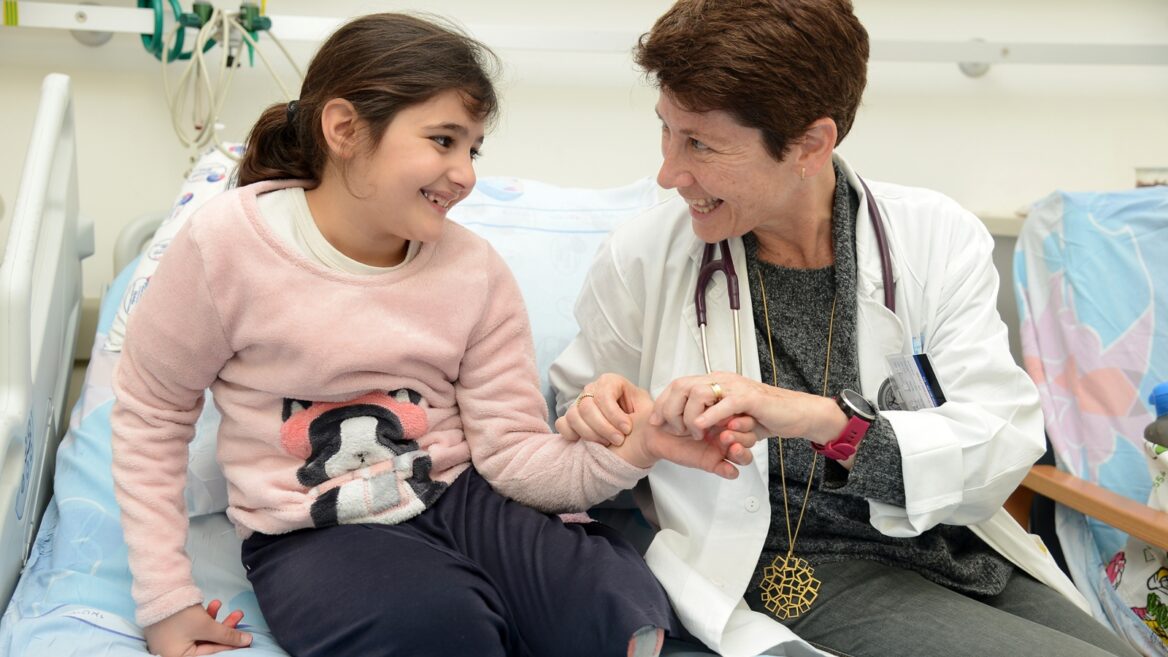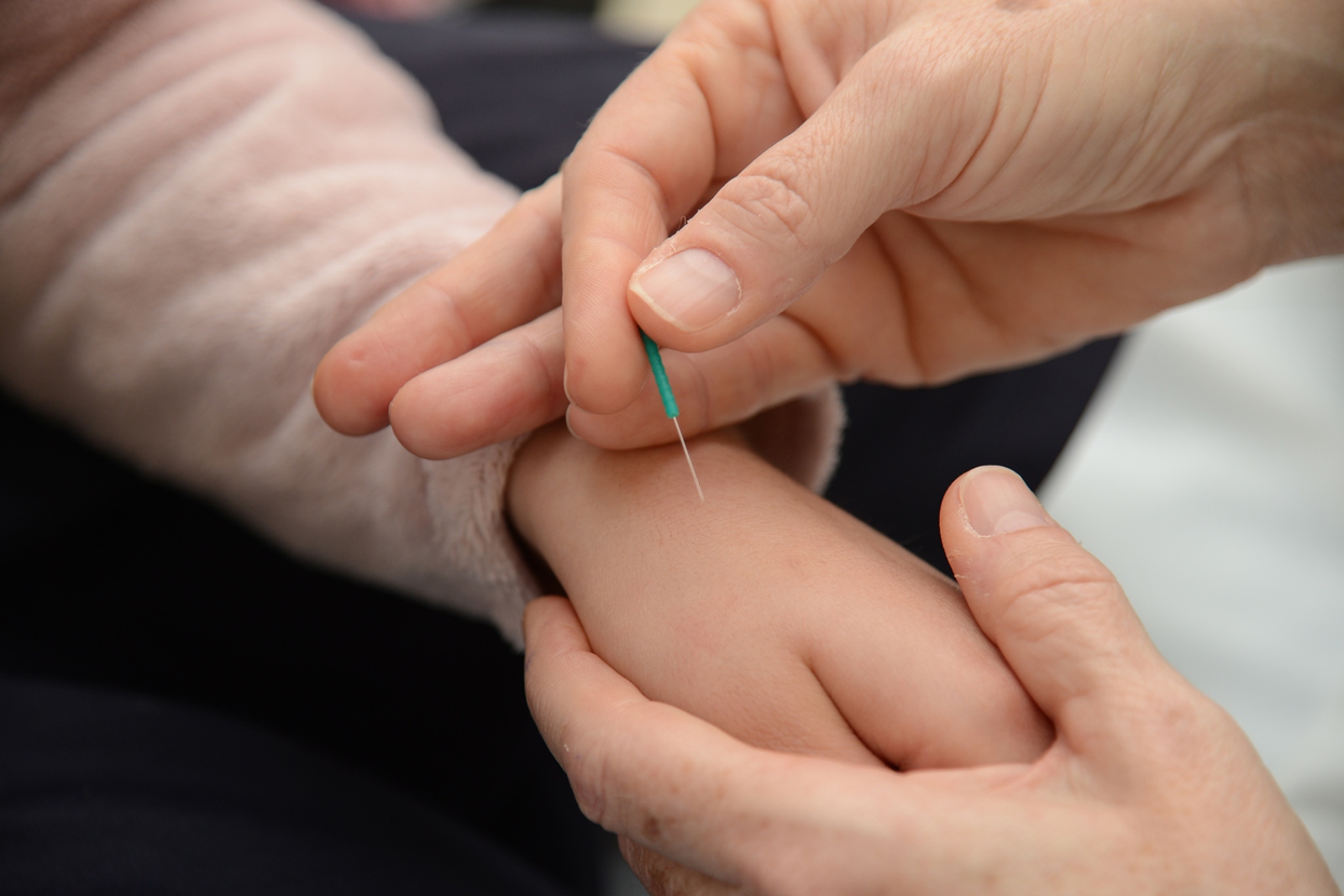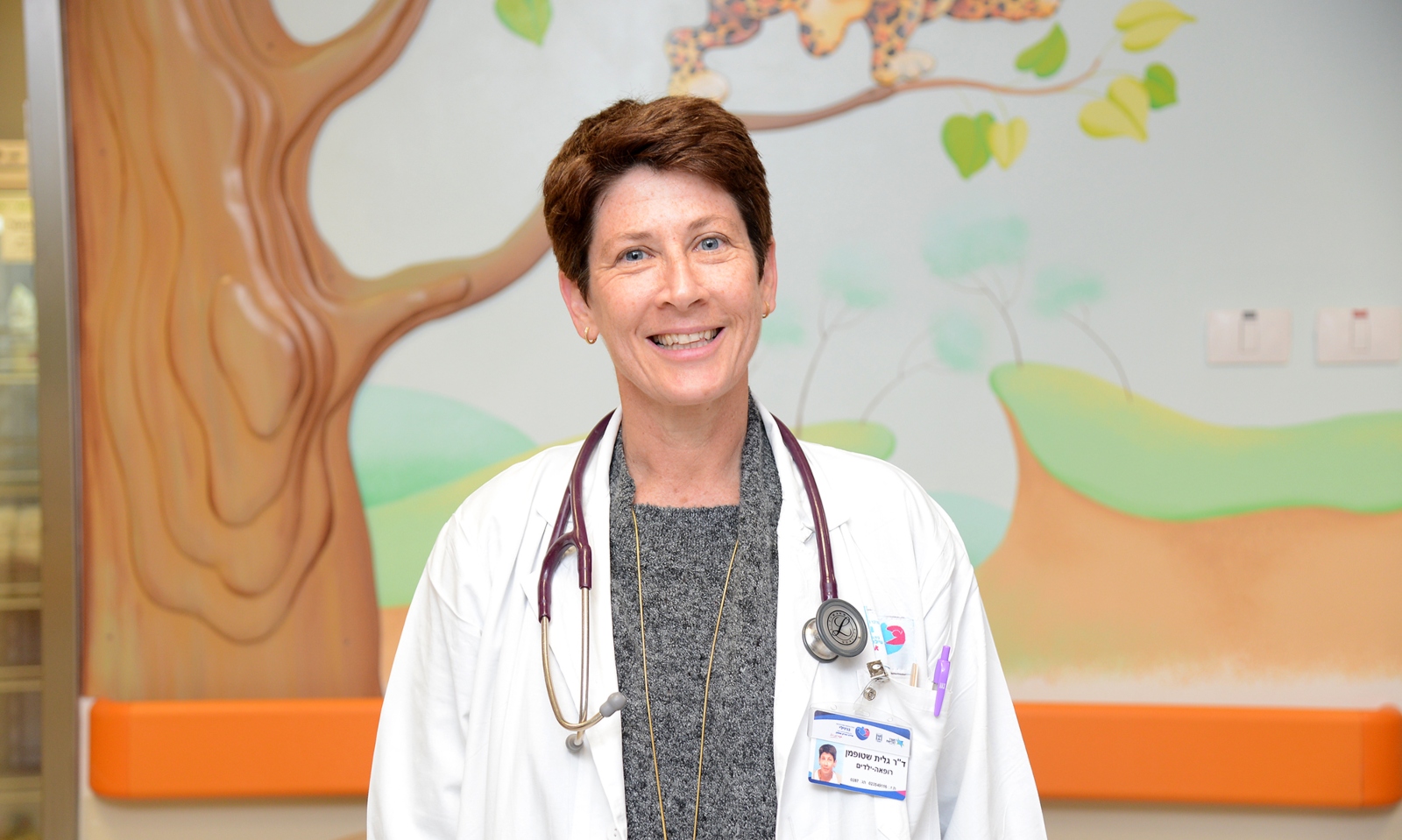Israeli Pediatric Ward Pioneers In-house Chinese Medicine
Filed under "Health"
More articles »
Thursday, May 14, 2020
‘I thought it might be helpful to try these things in parallel to regular medicine,’ says Barzilai Medical Center CEO and medical director.

Earlier this year, a teenager was admitted to Israel’s Barzilai Medical Center with severe urticaria (hives). It was not clear what caused the painful rash and it seemed resistant to medications.
Chief of pediatrics Dr. Zohar Landau asked Dr. Gali Stoffman to examine the patient. Stoffman, a medical doctor and Traditional Chinese Medicine (TCM) practitioner, directs Barzilai’s Center for Complementary Care.
“When I examined the boy’s pulse, I detected something that in Chinese medicine signifies emotional trauma. I asked him about it, and he told me I was correct,” Stoffman tells ISRAEL21c.
According to Chinese theory, traumatic events throw the body’s qi (energy flow) out of balance, causing adverse reactions.
“In this case, a lot of heat came to the surface,” explains Stoffman, who lectured last May on treating emotional trauma in children at a Chinese medicine conference in Germany.
After she performed acupuncture to rebalance the boy’s qi, his rash disappeared within six hours. Before he went home, she contacted the department’s social worker and his school to arrange continuing support.
“If he’d come in just for [conventional] medical care, we would have missed the underlying reason for the urticaria,” Stoffman says.

Blazing a bold new trail in complementary care
Several Israeli hospitals offer complementary (also called alternative) treatments – such as acupuncture, herb therapy, therapeutic massage and osteopathy — in departments such as outpatient oncology, pediatric neurology, and labor and delivery. And several American hospitals have associated integrative medicine clinics.
Barzilai, a 617-bed hospital in coastal Ashkelon, may be the only hospital in the world — let alone in Israel — providing free complementary care on the inpatient pediatric unit.
“I do not know of any other departments that work as we do,as an integrated service for all pediatric patients,” says Stoffman, a board member of the Israeli Association of Chinese Medicine. “I teach a lot in Europe and I’ve never seen anything like it.”
Stoffman earned her MD at Tel Aviv University in 1997 and then studied TCM. In addition to teaching pediatric Chinese medicine overseas and at the medical schools of Tel Aviv University and Hebrew University, in 2013 she opened the Panda Clinic in Rehovot. Her multidisciplinary staff includes medical doctors and alternative practitioners providing family care.

Last September, Barzilai CEO and Medical Director Prof. Chezy Levy approached Stoffman with the idea of integrating complementary care throughout the hospital.
When she agreed to head this initiative, he flew in the director of TCM from a hospital in Yangzhou to spend a week with staff at Barzilai.
At hospital expense, and with the aid of Israel-China NGO Matat, Levy sent Stoffman to Yangzhou for two weeks of observing how Chinese medicine is implemented in a Western-style hospital.
“This is really innovative for a hospital director to do and I am very grateful to Dr. Levy,” says Stoffman. “Integration of complementary care in other Israeli hospitals came from practitioners and patients, not from administration. Here, it was top down.”
Even at the Chinese hospital, pediatric patients rarely get TCM treatments. Stoffman demonstrated how it’s done.
“The doctors found it interesting since they have no experience with that. I also lectured in a university there,” she says.
‘I thought it might be helpful’
Formerly head of the Ministry of Health’s Medical Division, Levy has a Chinese medical practitioner in his family and observed TCM when visiting the hospital in Yangzhou. He maintains a working relationship with doctors there.
“When I was surgeon general of the Israel Defense Forces more than 10 years ago, I was aware of the need of some alternative treatments for pilots and for soldiers who carried heavy weight on their backs,” he tells ISRAEL21c.
“I thought it might be helpful to try these things in parallel to regular medicine — not instead of it — to help in reducing pain and regaining movements that hadn’t been made because of pain.”
Levy says acupuncture and other treatments “in the big basket of complementary medicine” have proven effective alongside conventional treatments in orthopedics, rehab after stroke, hand and back pain, and labor pain.
Its effects in children are less well known, but have been used to ease fever, ear and lung infections, asthma, weak immune system, allergic rhinitis, abdominal pain, constipation and nausea.
Since coming to Barzilai in 2012, Levy has arranged two visits from colleagues in Yangzhou and hopes one day to offer Chinese medicine training at Barzilai.
“I hope we will see it more and more in Israel,” he says.
Flexibility of mind
Stoffman has handpicked three additional experienced Chinese medicine practitioners to work in Barzilai’s pediatric, orthopedic and rehab departments. More may come on board in the future.
She says she felt welcomed by the hospital personnel. She and her crew join morning rounds, helping to determine which patients they will help treat.
“It’s easier for them to accept me because I am also a medical doctor,” she points out. “But in general, we are all received extremely well by the medical staff — not by everyone, but for those who have flexibility of mind and agree that the best medicine we can give is integrative.”
Pediatric department head Landau “is amazing in how open she is to bringing these ideas into the department,” adds Stoffman. “She gives me a lot of space. We have even set up a research project on treating bronchiolitis in babies. It’s an amazing experience for me.”
At the beginning of the Covid-19 crisis, Stoffman and another Chinese medicine practitioner at Barzilai opened an in-house support clinic for hospital staff. “The clinic works 16 hours a week and was fully booked from Day 1,” she tells ISRAEL21c.
“Most physicians and nurses don’t know what Chinese medicine is more beneficial for,” she says. “It’s a learning process for all of us to work together.”
By Abigail Klein Leichman MAY 12, 2020, 9:00 AM
Source:https://www.israel21c.org/israeli-pediatric-ward-pioneers-inhouse-chinese-medicine/?fbclid=IwAR0KaftsTwEyPMKNu-4ERhrgtIgTXgxVooEfQ_-f89OdY5e7zRW24ySYEyQ
Leave Your Comments
We welcome your comments. Please leave your ideas and opinions below.
